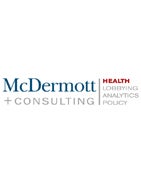The question is not if, but how: How will lawmakers tackle surprise billing? What started out as question for a small Senate working group in 2018 has turned into one of the major health priorities of both parties. Over the past year, discussion drafts were released, bills were introduced, and lawmakers sought feedback from stakeholders in an effort to produce bipartisan comprehensive legislation. In the last three days, two major bills have emerged (and more are on the way):
-
On May 14, 2019, Reps. Frank Pallone (D-NJ) and Greg Walden (R-OR), the Democratic and Republican leaders of the House Energy and Commerce Committee, released a discussion draft of the “No Surprises Act.”
-
On May 16, 2019, Sens. Bill Cassidy (R-LA), Michael Bennet (D-CO), Todd Young (R-IN), Maggie Hassan (D-NH), Lisa Murkowski (R-AK) and Tom Carper (D-DE), bipartisan group primarily working on transparency legislation, introduced their “Stopping the Outrageous Practice (STOP) of Surprise Bills Act of 2019.”
The two approaches have many similarities, but vary in key ways, as laid out in the chart below. Stakeholders should consider a few notable distinctions:
-
What constitutes surprise billing. The scenarios in which patients are protected are mostly aligned in the two proposals, except when a patient is seeking non-emergency care by an out-of-network provider at an in-network facility. The Senate bill prohibits surprise billing in this circumstance. The House bill, however, allows for an exception if the patient is provided with advance written and oral notice and, consents.
-
Process for Providers to Challenge the Payment Rate. The Senate bill includes an independent dispute resolution process, which allows providers to seek a different payment rate than the default median in-network rate where there is a ban on surprise billing. The House sets the minimum benchmark rate for insurers to pay providers and provides no mechanism for appeal.
-
Transparency Requirements. The Senate bill includes a number of transparency requirements for physicians, hospitals and health insurers. The House bill does not include similar requirements.
In the Senate, it will be important to see if Sens. Lamar Alexander (R-TN) and Patty Murray (D-WA), the leaders of the Health, Education, Labor and Pensions (HELP) Committee, adopt the provisions in the STOP Surprise Bills Act in a broader cost containment package they expect to release in the next few weeks. If they do so, that will position this bill as the leading Senate solution on the matter. If they do not include it, or if they advance an alternative, that will muddy the outlook.
In the House, Reps. Pallone and Walden are seeking feedback on the No Surprises Act discussion draft, and have yet to schedule a hearing on the issue. The Ways and Means Health Subcommittee, however, is scheduled to hold a “Hearing on Protecting Patients from Surprise Medical Bills” on May 21, 2019. More bills are expected to be introduced soon, further demonstrating broad bipartisan and bicameral interest in addressing this issue legislatively in 2019.
Surprise Billing Bill Comparison
|
Provision |
House: No Surprises Act |
Senate: STOP Surprise Medical Bills |
|---|---|---|
|
Introduced |
May 14, 2019, by Reps. Frank Pallone (D-NJ) and Greg Walden (R-OR) |
May 16, 2019, by Sens. Bill Cassidy (R-LA), Michael Bennet (D-CO), Todd Young (R-IN), Maggie Hassan (D-NH), Lisa Murkowski (R-AK) and Tom Carper (D-DE) |
|
Markets Affected |
Individual and group market |
Individual and group market |
|
Billing in Emergency Situations |
Prohibits balance billing for all emergency services. Patients would be responsible only for the amount they would have paid in-network. |
Prohibits balance billing for all emergency services. Patients would be responsible only for the amount they would have paid in-network. |
|
Billing in Non-Emergency Situations |
Patients should be provided with written and oral notice about whether their providers will be in or out of network and what charges they must face. If patients do not sign a consent form after that notice, they cannot be balance-billed and would only be responsible for the amount they would have paid in-network. If patients sign the consent, they can be charged more than the in-network rate. |
Prohibits balance billing for elective procedures at an in-network facility by an out-of-network provider. Patients would be held responsible only for the amount they would have paid in-network. |
|
Billing for Services Following Emergency Care |
No provision |
Prohibits surprise billing for services following emergency care at an out-of-network facility when the patient cannot travel without medical transport. |
|
Billing for Specialty Care |
Prohibits balance billing from providers that patients could not reasonably be expected to choose themselves, such as anesthesiologists, radiologists, pathologists, neonatologists, assistant surgeons, hospitalists and intensivists. |
No provision |
|
Payment Methodology |
Insurers would be required to make a minimum payment to out-of-network providers for services rendered. The minimum payment would be set at the median contracted (in-network) rate for the geographic area. States would have the ability to determine payment standards for plans that they regulate. |
The out-of-network provider will automatically be paid the median in-network rate. If the provider would like to challenge the payment, the provider has 30 days to initiate an independent dispute resolution (IDR) process. The IDR process is between the plan and provider (the patient is not involved). Each party submits one final offer to the IDR entity, which has 30 days to consider commercially reasonable rates (which must be based on in-network rates) for that geographic area when making its award determinations. The non-prevailing party will pay the costs of the IDR process for the prevailing party. Group health plans may include the costs of arbitration as part of medical care costs in their medical loss ratio calculations. |
|
Insurance Transparency |
No provision |
Health plans/issuers must clearly list on any insurance card issued to plan enrollees the amount of the in-network and out-of-network deductibles. Plans/issuers also are required to tell patients or enrollees the expected cost-sharing for the provision of a specific health care service, including services reasonably expected to be provided in conjunction with it (e.g., laboratory work), within 48 hours of request. Plans/issuers must make price information available online for services provided at different sites of care within their network. All group health plans also must annually report to the Secretary of HHS and Secretary of Labor the following information: • Total claims submitted by both in-network and out-of-network health care providers with respect to enrollees under the plan or coverage, and the number of such claims that were paid and denied; |
|
Provider Transparency |
No provision |
Providers are required to tell patients or enrollees the expected cost-sharing for the provision of a specific health care service, including services reasonably expected to be provided in conjunction with it (e.g., laboratory work), within 48 hours of request. |
|
Hospital Transparency |
No provision |
Hospitals must disclose on their websites and in printed materials any financial relationship or profit-sharing agreement with a physician group. Hospitals also are required to include ancillary services provided by individuals, such as phlebotomists, laboratory technicians and echocardiogram technicians, within the hospital bill sent to patients. |
|
Civil Monetary Penalties |
If a patient is balanced billed in any of the prohibited scenarios, the provider, hospital, or health issuers is subject to yet-to-be-determined civil monetary penalties. |
If a patient is balanced billed in any of the prohibited scenarios, the provider, hospital, or health plan/issuer is subject to existing civil monetary penalties under the Public Health Service Act. |
|
Other |
Provides $50 million in grants for states looking to develop or maintain an all-payer claims database. |
Includes a study by HHS to examine the effects of this bill. |




 />i
/>i
